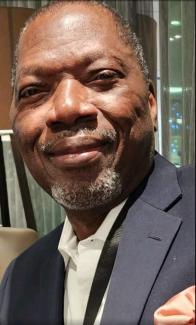
Many solutions to challenges around us are right under our noses…if we learn to smell them and approach things differently and boldly. And we don’t always have to know the solutions, only the questions. As William Easterly argues in The Tyranny of Experts, we don’t always have to focus on the material challenges.
There are many instances that I can recall from my 21 years as an adviser at the United Nations.
We spent many decades in the 80s responding to the HIV/AIDS pandemic, sometimes colliding fear-inspired measures with sophisticated epidemiology and brilliant communication and policy advocacy strategies.
For example, at the onset, to call attention of African Ministers of Finance to the urgent need for additional funding in response to the pandemic, we usedstatistics of millions of people who had died, millions more who were infected and would die in a few years, as well as further millions who would be impacted by it. This fact-based proposition was supposed to motivate the ministers to action. But, as we were to find out, finance people are seldom motivated with the number of dead people or those who might die! In fact, cynically, they see this in terms of manageability of budgets, especially in the context of scarce resources: if people die, all things being equal, you’d have fewer mouthsto worry about in terms of allocation of resources. So, it is the old demand and supply argument. Their perspectives began to change once we switched the advocacy to the economics of HIV/AIDS: the massive resources it would require to replace a dead teacher, doctor, engineer and the social dislocation to the entire society and economy as a result of the dead people. The crucial lesson is that the solution we seek is not usually in the material challenge. It is never black or white.
Sometimes, many of our reasonable assumptions can fall flat. Under a $54 million World Bank-funded HIV/AIDS Treatment Acceleration Program (TAP), we were to facilitate operational research into the social-economic determinants of HIV treatment in Ghana, Mozambique and Burkina Faso. In other words, what makes people take their medications while others refuse? Is it the level of education? Information? Social networks? Proximity to health facilities? Family composition? Gender? Marital status? Etc. To ensure ownership, the Bank had insisted that the countries took leadership in conceptualizing the research and we, as the UN, would facilitate and implement. That way, we would have specific data on why some people adhered to treatment and why others became perdu de vu. Once we had the primary data, we would be able to develop targeted policies to accelerate HIV/AIDS treatments across Africa.
You would expect countries to jump at this opportunity, especially when resources were available. Wrong. In Brazzaville, at a conference, I ran into one of our collaborators and asked why there was no action from his end. The response is something that development workers should never forget: What gives you the idea that we even know what we want?!Sometimes, out of best intentions, we make assumptions that are not based on empirical evidence. That question showed us that the first capacity deficit is usually knowing what you want. It is never black or white.
But hyper focusing on the challenge may also make us lose sight of the big picture. During our HIV/AIDS advocacy, we encountered international organizations that we referred to as “donors” and whom we expected to support the coordinated African response to the pandemic, especially since they were always quick to remind us that about 10% of Africa was infected and dying. This was repeated at many forums that it began to paralyze action and depress advocacy in many African countries: the challenge was too much; resources were unavailable; too many people were dying. Gradually, we had ceded the narrative to donors, forgetting that even if 10% of Africa would perish as a result of this pandemic (and it turned out to be a wrong projection), we still had 90% to worry about and plan for. This is why at Grey Factor, there is a work stream on “How We Know What We Know” under our Strategic Communications program. Because if you get the problems wrong, or focus on the wrong problem, or aspects of the problem, resolution will be off the mark and the solutions will not be sustainable.
